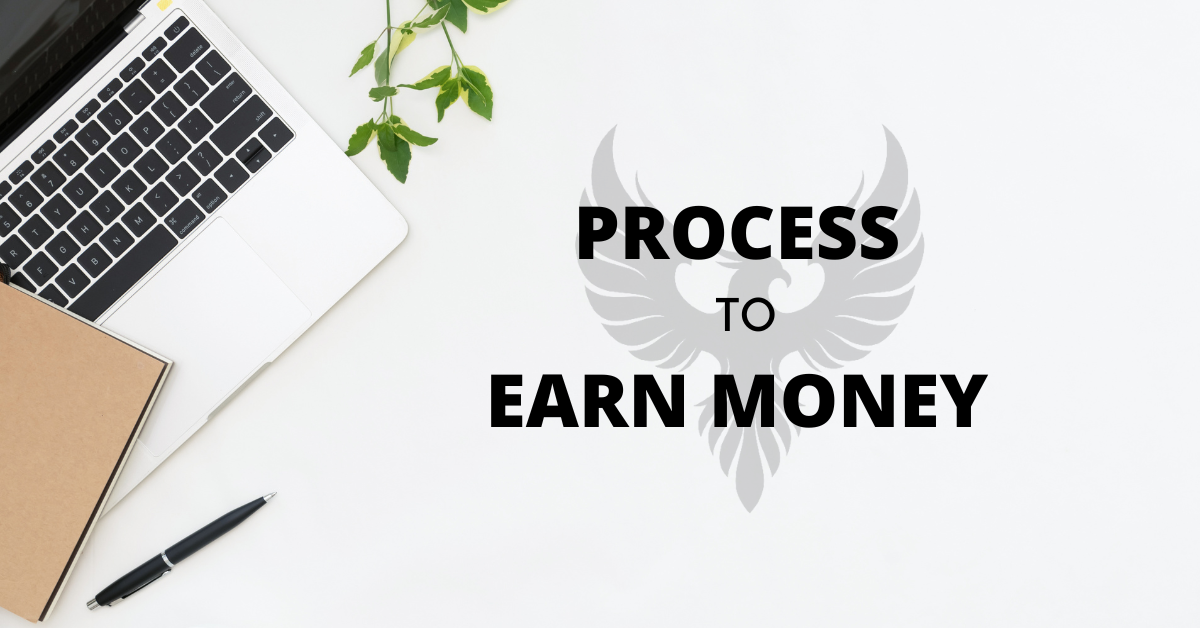One of the most lucrative opportunities for individuals looking to share their expertise and earn money online is through e-course creation. E-courses, or online courses, provide a fantastic platform to deliver valuable knowledge and skills to a global audience. Whether you’re a seasoned professional in your field or have a passion you want to share, Digital Freedom Society’s e-course creation can be a fulfilling endeavor, both intellectually and financially.
Why E-course Creation?
Before diving into the nitty-gritty of the e-course creation process, it’s essential to understand the advantages of this medium. E-courses offer several benefits that make them an attractive option for both creators and learners:
Global Reach: E-courses break down geographical barriers, allowing you to reach students from around the world. This expansive audience potential increases your chances of success and financial reward.
Flexibility: As an e-course creator, you have the flexibility to choose your schedule and work from the comfort of your own space. This makes it an excellent option for individuals with full-time jobs, freelancers, or anyone seeking a side income.
Passive Income: Once you create an e-course, it can become a consistent source of passive income. You put in the initial effort to develop the course, and then it can generate revenue over an extended period without requiring continuous, real-time involvement.

Skill Enhancement: E-course creation requires you to organize your knowledge, articulate your ideas clearly, and structure your content effectively. This process enhances your skills and may open up other opportunities, such as public speaking, consulting, or writing.
Now that we understand the potential, let’s dive into the step-by-step process of creating a successful e-course that not only provides valuable content but also generates revenue. Research the demand for your chosen niche. Are there people actively seeking to learn about it? Use keyword research tools, survey potential learners, and explore popular e-course platforms to gauge interest in your chosen topic.
Set Clear Goals
Before you start creating content, set clear goals for your e-course. What do you want your students to achieve after completing your course? Defining these objectives will help you structure your content and keep your course focused and effective.
Plan Your Curriculum
Outline the curriculum for your e-course. Divide the content into modules or sections, and break down the topics you’ll cover in each. Make sure there’s a logical progression, and the content flows smoothly from one topic to the next.
Select a Platform
Choose a platform to host your e-course. There are several options available, ranging from dedicated e-course platforms like Udemy, Teachable, and Coursera to self-hosted options using WordPress plugins or other e-commerce platforms.
Each platform has its pros and cons, so choose the one that aligns with your goals, budget, and technical skills.
Price Your Course Strategically
Pricing is a critical factor in the success of your e-course. Research the pricing of similar courses in your niche, and determine a price point that reflects the value you’re providing. You can offer tiered pricing, with additional resources or support at higher price points.
Consider running promotions or discounts during the launch phase to attract initial students.
Marketing and Promotion
Creating a great e-course is only half the battle. Use social media, email marketing, content marketing, and even paid advertising to spread the word.
Leverage your existing network, collaborate with influencers in your niche, and seek opportunities for guest posts or podcast interviews to establish yourself as an authority.

Engage with Your Students
Once students enroll in your course, engage with them actively. Respond to questions promptly, create a community where students can interact, and encourage feedback. Positive testimonials and word-of-mouth recommendations from satisfied students can significantly boost your course’s reputation.
Iterate and Improve
Pay attention to student feedback and performance metrics. Continuously update and improve your course based on this feedback. Consider adding new content, updating outdated information, or expanding on popular topics.
Scale and Diversify
As your e-course gains popularity and generates income, consider scaling your efforts. Create additional courses, explore new niches, or offer advanced levels of your existing course. You can also explore partnerships, collaborations, or affiliate marketing to expand your reach.
Deliver Exceptional Value
The heart of a successful e-course lies in the value it provides to your students. Strive to exceed your students’ expectations with the content you deliver. Ensure that each module or lesson addresses specific learning objectives and leaves your students feeling empowered and equipped with valuable skills or knowledge.
Consider including practical examples, case studies, and real-world applications to make the content relatable and applicable to your students’ lives or careers. The more actionable the information, the more satisfied your students will be.
Invest in Quality Production
The presentation of your e-course matters. High-quality production can make a significant difference in how your course is perceived. While you don’t need a High-level production, ensuring that your course materials are clear, well-organized, and free from distractions will enhance the overall learning experience.
Stay Updated and Relevant
Stay current in your field of expertise. Keep an eye on industry trends, new developments, and emerging technologies. If your course covers a topic that evolves over time, consider offering updates to your students to keep the content relevant.
The e-course landscape is dynamic, and staying up-to-date ensures that your courses remain valuable and in demand.
Offer Support and Interaction
In addition to the course content, providing support and interaction can greatly enhance the learning experience. Consider hosting live Q&A sessions, webinars, or discussion forums where students can ask questions, share their experiences, and interact with you and your peers.
Offering personalized support, even if it’s in the form of an email or messaging system, can make your students feel valued and motivated to complete the course successfully.
Analyze and Optimize
Regularly analyze the performance of your e-course. Use analytics tools provided by the platform you’re using or third-party tools to track metrics such as enrollment rates, completion rates, engagement levels, and student feedback.
Identify areas where students might be dropping off or encountering difficulties, and use this data to optimize your course. This iterative process of improvement ensures that your course remains effective and continues to attract new students.
Stay Ethical and Transparent
Maintain a high level of ethical standards in your e-course creation process. Be transparent about the content you’re offering, the value students can expect, and any prerequisites they should have. Deliver your promises and avoid any misleading or dishonest practices.
Ethical behavior not only establishes your credibility but also builds trust with your students, leading to positive reviews and recommendations.
Continuously Learn and Evolve
The e-course creation journey is a learning experience in itself. Stay open to feedback, learn from your own successes and failures, and stay curious about new teaching methodologies, technology tools, and instructional design strategies.
Attend webinars, workshops, or courses on e-learning, instructional design, or online teaching to enhance your skills and stay at the forefront of the e-course industry.
Benefits of Successful E-course Creation:
Creating and running a successful e-course can bring about a wide range of benefits, not just financially but also professionally and personally. Let’s delve deeper into some of these key advantages:
Financial Freedom: A well-designed e-course that meets the needs of a target audience can become a lucrative source of passive income. As the course gains traction and attracts more students, your income potential grows, providing financial stability and freedom.
Skill Enhancement: The process of creating an e-course requires you to organize your thoughts, structure content logically, and present information clearly. These skills not only enhance your teaching abilities but also benefit you in various other aspects of your professional life.
Thought Leadership: By creating and delivering valuable content through your e-course, you position yourself as a thought leader in your niche. This recognition can lead to speaking opportunities, consulting gigs, collaborations, and increased visibility within your industry.
Global Reach and Impact: E-courses break down geographical barriers, allowing you to reach a worldwide audience. This global reach extends your impact, as you can share your expertise with people from diverse backgrounds and cultures, making a difference in their lives.
Work Flexibility: E-course creation provides flexibility in terms of when and where you work. You can develop and maintain your course from the comfort of your own home, on your own schedule. This flexibility is particularly beneficial for individuals with other commitments, such as a full-time job or family responsibilities.

Continuous Income: Once your e-course is up and running, it can generate income consistently. Unlike traditional teaching or consulting gigs that require continuous effort, a successful e-course can provide you with residual income over an extended period.
Personal Satisfaction: Seeing your students succeed and benefit from your course can be incredibly satisfying. Knowing that you’ve made a positive impact on people’s lives by sharing your knowledge and expertise is a rewarding feeling that contributes to your sense of fulfillment.
Low Start-up Costs: Compared to many other businesses or ventures, creating an e-course has relatively low start-up costs. You can get started with basic equipment (e.g., a computer, microphone, camera) and invest more as your course gains traction.
Networking Opportunities: Through your e-course, you can connect with like-minded individuals, potential collaborators, and industry professionals. Networking opportunities can lead to new partnerships, joint ventures, and broader exposure within your field.
Personal Growth: The process of creating and managing an e-course pushes you to learn and adapt. It encourages personal growth as you explore new ways of presenting information, improve your communication skills, and gain a deeper understanding of your subject matter.
Contribution to Education: By creating an e-course, you contribute to the online education ecosystem. You become part of a community of educators who are shaping the future of learning, making education more accessible and inclusive.
Conclusion
Creating a successful e-course is a multifaceted process that requires dedication, creativity, and a commitment to delivering value. By following the steps outlined by Digital Freedom Society, you can embark on a fulfilling journey of sharing your knowledge, making a positive impact on your students, and generating significant income.
Remember, the key to long-term success in e-course creation is to focus on creating high-quality content, building strong relationships with your students, and continuously improving and adapting to meet the ever-changing needs of your audience. With the right approach and mindset, e-course creation can be an incredibly rewarding and sustainable venture.
